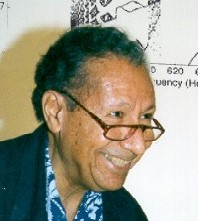Nabil Hassan Farhat - US grants
Affiliations: | 2012 | University of Pennsylvania, Philadelphia, PA, United States |
Website:
https://www.optica.org/pt-br/about/newsroom/obituaries/2020/nabil_h_farhat/We are testing a new system for linking grants to scientists.
The funding information displayed below comes from the NIH Research Portfolio Online Reporting Tools and the NSF Award Database.The grant data on this page is limited to grants awarded in the United States and is thus partial. It can nonetheless be used to understand how funding patterns influence mentorship networks and vice-versa, which has deep implications on how research is done.
You can help! If you notice any innacuracies, please sign in and mark grants as correct or incorrect matches.
High-probability grants
According to our matching algorithm, Nabil Hassan Farhat is the likely recipient of the following grants.